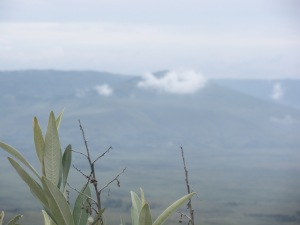I know I said that I would do one post everyday this week but circumstances have prevented me. Yesterday I was sick and the day before I was really hot and lazy so I really don’t have an excuse other than being on the East African coast…
So the continuation of my last blog post starts the day we moved into our Nairobi host families. Everyone was placed in a family within about a 10 minute walk from our class building, expect Val and Amana who were a bit farther (but they had a pool so it balances out?).
I lived in an apartment building in the Jamahuri Neighborhood of Nairobi, near Togo flats and Woodley Estates (right near where Obamas Dad lived when he was in Nairobi). My homestay for me brought a lot of firsts. Firstly, my host father was a polygamist. I lived in the home of his first wife, although his second wife lived a few buildings down from us. The community that my family belongs to, “Luos” from western Kenya, practices polygamy often. There a few reasons they practice polygamy. For one, when the first wife of a man begins growing older, he will marry a second wife so that when the first wife is unable to take care of him and the family the second wife can step in and take care of him and the first wife. Also (this was NOT the case in my family) there is the concept of wife inheritance in the Luo culture, where if a mans brother dies, he is able to “inherit” his wife and children so that he can provide for them. This concept is one of the many factors that has contributed to the high impact of HIV/AIDS in the Luo community. At least in my family, the relationship between the two wives and their children was beyond amicable. The children had beds and both places and would come and go at both houses. To me, it all seemed like one big family and they were all amazing
My family was great. I lived in a room with my host brother and sister. He was 20 and was hoping to become a pilot, and my sister was in her mid twenties and was hoping to start a new job at a restaurant in Dubai. My host mother was an excellent cook and always made sure I overate her food at every meal. They were all very patient with me as I struggled through my first few weeks of Kiswahili. At that point I probably knew about 20 words so they answered “where are you from? What is your name? What do you like to eat?” probably 10 times each. We all diligently watched a Mexican soap opera “wild at heart” every night and I honestly would be curious every night as to whether Mr Allejandro would survive his illness.
Being a somewhat of an introvert, I wasn’t really looking forward to the homestay aspect of the program. its a lot of mental energy to be friendly to people you don’t know and to constantly be watching what you say and do. But after a while, it honestly felt like I was part of the family and I felt comfortable doing and saying pretty much anything around them.
